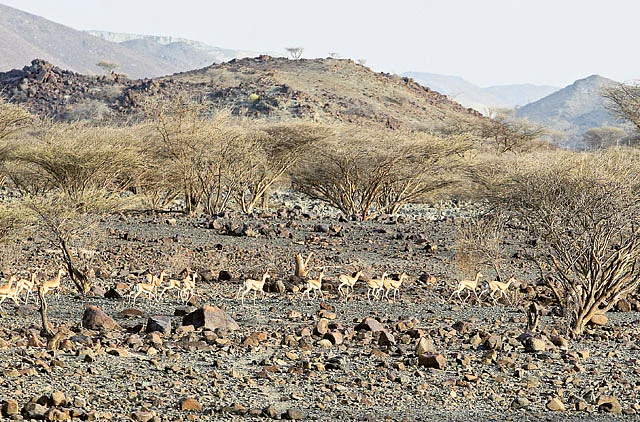We all love tourism. For a tourist, it is a pleasant experience to relax and visit new places, meet new people and learn about different cultures. For local communities, it creates employment opportunities and help economy to grow.
The sector has been hit the hardest by the coronavirus (Covid-19) pandemic, and measures introduced to contain its spread. According to Organisation for Economic Co-operation and Development (OECD), revised scenarios indicate that the potential shock could range between a 60-80 per cent decline in the international tourism economy in 2020.
Now, many countries are entering a new phase in fighting the virus while at the same time managing the reopening of the economy. In doing so, countries are taking various recovery measures to support the tourism sector and restore tourist’s confidence including improving visa application processes with online applications, introducing price incentives, lifting travel restrictions while assuring health and hygiene measures and encouraging local tourism, at least for time being.
There is no doubt that the Covid-19 pandemic will change dramatically the travel patterns with more general trend towards more environmental friendly tourism or “ecotourism”. According to the International Ecotourism Society, ecotourism is “responsible travel to natural areas that conserves the environment and improves the well-being of local people.”
The main aim is to minimise human impact on the environment and build environmental and cultural awareness and respect while generating revenues for local communities.
Mass conventional tourism as we know, is very likely to continue in a post COVID-19 era despite that it being unsustainable economically and environmentally. The conventional tourism causes irreversible negative impacts to ecosystems, by putting excess pressure on resources like water.
Protecting natural resources
Disturbing natural ecosystem balance helps release pathogens in wild life reservoirs. That is why, in many cases, ecotourism can provide the alternative that protect the environment and natural resources, empower local communities socially and economically.
If humanity learnt one thing from this pandemic: it is that we need to rethink the way that different development activities operate and the urgent need to reset its relationship with nature or we suffer worse pandemic outbreaks in future.
The pandemic crisis is an opportunity to rethink tourism for the future. Governments need to support and build a stronger, more sustainable and resilient tourism economy. Ecotourism can play an important part in defining and delivering a better post Covid-19 world.
There is no doubt the UAE is keen to become one of the most sustainable countries in the world with its green economy path.
For instance, UAE Vision 2021, launched by the President His Highness Shaikh Khalifa Bin Zayed Al Nahyan, emphasises the importance of “protecting the country’s natural environment from the dangers of human activities”.
The country is undertaking a wide variety of projects focusing on conservation, community development and raising awareness of the importance of responsible tourism development to both communities and visitors.
As of June 2020, UAE officially declared 49 areas protected (spanning around 15.5 per cent of the country’s territory), exceeding the target set in the National Strategy for Biodiversity 2015-2021. In addition, UAE is developing hundreds of natural sites, establishing tourist resorts around the most important natural and historical areas.
Plenty to explore in the UAE
Tourists visiting UAE are not only coming for conventional tourism activities that can be found nowadays easily in many countries around the globe but they will be looking to explore the spectacular and natural attractions of the country.
For instance, tourists can enjoy the unique natural areas such as Liwa and Al-Ain, natural hot springs such as Al-Ain, natural reserves such as the Wathba Wetland Reserve, Al-Ain Wildlife Resort and Park and Dubai Desert Park.
In addition to enjoying the desert, beaches, mountains, one can try nature-based eco activities such as diving, camping, horse riding, excursions on camels, dune cycling, dune boarding, dune gliding/paragliding and many more desert adventures.
It is worth mentioning that the Ministry of Climate Change and Environment (MOCCAE) launched a multiphase national project named ‘The UAE’s Natural Wonders’ to promote ecotourism across the seven emirates.
It is a great effort and project and still there are a lot to do to by various stakeholders (i.e. private sector, civil society, media … etc) to promote UAE as an ecotourism destination.
Many ecotourism activities do not have to be mega-scale projects. In fact, the majority of them can be a small-scale project that can open up more economic opportunities for small private companies and local communities.
In short, in a post Covid-19 era, UAE is best qualified to be one of the top ecotourism destinations in the region.
Dr. Mohamed Abdel Raouf is an independent environment researcher.
Sign up for the Daily Briefing
Get the latest news and updates straight to your inbox
Network Links
GN StoreDownload our app
© Al Nisr Publishing LLC 2026. All rights reserved.
